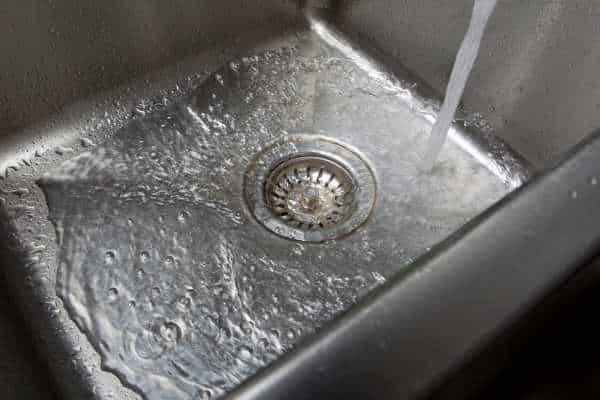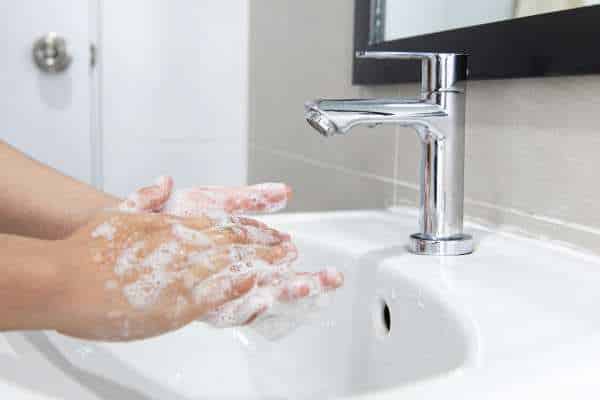A foul-smelling sink drain can make your kitchen or bathroom unpleasant, but there are simple and effective ways to fix the issue. In this guide on “How to Get Rid of a Stinky Sink Drain,” we’ll explore the best cleaning methods to eliminate odors and keep your drains fresh. From natural remedies like baking soda and vinegar to deep-cleaning techniques, you’ll discover easy solutions to remove buildup and prevent bad smells from returning. Proper maintenance, regular flushing, and a few preventive measures can make a big difference. Follow these expert tips to enjoy a clean, odor-free sink and maintain a healthier home environment with minimal effort.
Quick Fixes: Immediate Solutions for Eliminating Odors

Unpleasant sink odors can often be resolved with quick and simple solutions. Start by flushing the drain with boiling water to break down grease and loosen trapped debris. A mixture of baking soda and vinegar is another effective remedy, helping to neutralize odors and dissolve buildup. Let it sit for 15 minutes before rinsing with hot water. Citrus peels, such as lemon or orange, can also freshen up the drain when ground in the garbage disposal. For an extra boost, pour a small amount of dish soap down the drain and run warm water to eliminate grease. These quick fixes help keep your sink smelling fresh without the need for harsh chemicals.
Baking Soda and Vinegar: A Natural Cleaning Remedy
A natural and effective way to eliminate sink drain odors is by using baking soda and vinegar. This powerful combination helps break down grease, food particles, and bacteria that cause unpleasant smells. Start by pouring a cup of baking soda down the drain, followed by a cup of white vinegar. Allow the mixture to fizz and work its magic for about 15 minutes, loosening grime and buildup. Afterward, flush the drain with hot water to wash away residue and restore freshness. Regular use of this method prevents clogs and keeps drains odor-free without harsh chemicals. It’s an eco-friendly, cost-effective solution for maintaining a clean and fresh-smelling sink.
Using Boiling Water to Flush Out Odor-Causing Buildup
A simple yet effective way to eliminate sink drain odors is by flushing the pipes with boiling water. Over time, grease, soap residue, and food particles accumulate in the drain, creating a breeding ground for bacteria and foul smells. Pouring a pot of boiling water down the sink helps break down this buildup, washing away debris and clearing minor clogs. For better results, repeat the process once or twice a week to maintain a fresh-smelling drain. If grease is a concern, adding a few drops of dish soap before pouring the water can help dissolve it. Regular maintenance with boiling water is an easy, chemical-free way to keep your sink clean and odor-free.
How to Clean Your P-Trap for a Fresh-Smelling Drain

A clogged or dirty P-trap can trap food particles, grease, and debris, leading to unpleasant sink odors. To clean it, place a bucket under the pipe to catch any water, then loosen the slip nuts and carefully remove the P-trap. Rinse it thoroughly with warm, soapy water, scrubbing away any buildup inside. For stubborn grime, soak the trap in a mixture of vinegar and baking soda before rinsing. Once clean, reattach it securely and run water to ensure there are no leaks. Regular maintenance prevents blockages and keeps your drain fresh, helping to eliminate foul smells and improve overall sink drainage efficiency.
The Best Enzyme Cleaners for Breaking Down Organic Waste

Enzyme cleaners are a powerful, eco-friendly solution for breaking down organic waste in sink drains. Unlike harsh chemicals, these cleaners use natural bacteria and enzymes to digest food particles, grease, and other debris that cause bad odors. They work effectively by breaking down buildup at a microscopic level, preventing future clogs and keeping drains fresh. To use, simply pour the recommended amount into the drain and let it sit overnight for maximum effectiveness. Regular application can maintain a clean and odor-free plumbing system without damaging pipes. Choosing a high-quality enzyme cleaner ensures long-term results while keeping your home environment safe from harmful toxins.
Removing Odors from Garbage Disposals Effectively
Garbage disposals can trap food particles and grease, leading to unpleasant odors over time. To eliminate smells, start by running cold water while grinding a handful of ice cubes and coarse salt to break down residue. Next, pour baking soda followed by vinegar into the disposal, allowing it to fizz and dissolve buildup. After a few minutes, rinse with hot water to flush away debris. For a refreshing scent, grind citrus peels like lemon or orange. Regularly cleaning the rubber splash guard with soapy water and a brush also helps remove trapped grime. Maintaining a clean garbage disposal prevents lingering odors and keeps your kitchen smelling fresh.
Preventing Bacteria and Mold Growth in Your Drain

Keeping your Rid of a Stinky Sink Drain free from bacteria and mold requires regular maintenance and proper cleaning techniques. Moisture and food particles create the perfect environment for microbial growth, leading to unpleasant odors and potential health risks. To prevent buildup, flush the drain weekly with a mixture of hot water and vinegar to break down grease and kill bacteria. Using baking soda can help absorb excess moisture and neutralize odors. Avoid letting food scraps sit in the drain for long periods, and always run water after using the sink to keep pipes clear. Installing a drain cover can also reduce debris accumulation, ensuring a cleaner and fresher-smelling kitchen or bathroom drain.
The Role of Proper Ventilation in Preventing Sink Odors
Keeping your Rid of a Stinky Sink Drain free from bacteria and mold requires regular maintenance and proper cleaning techniques. Moisture and food particles create the perfect environment for microbial growth, leading to unpleasant odors and potential health risks. To prevent buildup, flush the drain weekly with a mixture of hot water and vinegar to break down grease and kill bacteria. Using baking soda can help absorb excess moisture and neutralize odors. Avoid letting food scraps sit in the drain for long periods, and always run water after using the sink to keep pipes clear. Installing a drain cover can also reduce debris accumulation, ensuring a cleaner and fresher-smelling kitchen or bathroom drain.
DIY Drain Fresheners: Easy Home Remedies
Proper ventilation plays a crucial role in keeping sink drains odor-free by allowing gases to escape and preventing foul smells from lingering. A well-functioning plumbing vent helps regulate air pressure, ensuring smooth water flow and reducing the chances of buildup inside pipes. Blocked or inadequate ventilation can trap sewer gases, leading to persistent odors in the kitchen or bathroom. Regularly checking vent pipes for obstructions like debris, bird nests, or ice buildup can help maintain a fresh-smelling drain. Installing an air admittance valve (AAV) in poorly ventilated areas can also improve airflow. Keeping the ventilation system in good condition ensures a cleaner, more hygienic home environment while preventing unpleasant drain odors.
When to Use Chemical Drain Cleaners (and Safety Tips)

Chemical drain cleaners can be effective for clearing stubborn clogs and eliminating odors, but they should be used cautiously. These products contain strong chemicals designed to dissolve grease, soap scum, and organic buildup. They work best when natural methods like baking soda and vinegar fail to remove blockages. Always wear gloves and eye protection to prevent skin irritation, and ensure proper ventilation when using them. Never mix different cleaners, as this can create toxic fumes. Pour the solution slowly and follow the manufacturer’s instructions carefully. If clogs persist after multiple treatments, professional plumbing assistance may be needed to avoid pipe damage and ensure long-term drain health.
Conclusion
Eliminating unpleasant drain odors doesn’t have to be a challenge. By following the right cleaning techniques and preventive measures, you can maintain a fresh and functional sink. This guide on “How to Get Rid of a Stinky Sink Drain” has covered natural remedies, deep-cleaning methods, and professional solutions to tackle persistent smells effectively. Regular maintenance, proper waste disposal, and periodic deep cleaning can prevent odors from returning. Whether using baking soda, vinegar, or enzyme cleaners, a proactive approach ensures a long-term solution. Keep your sink smelling fresh and free of buildup with these expert tips, and enjoy a cleaner, healthier home environment effortlessly.

